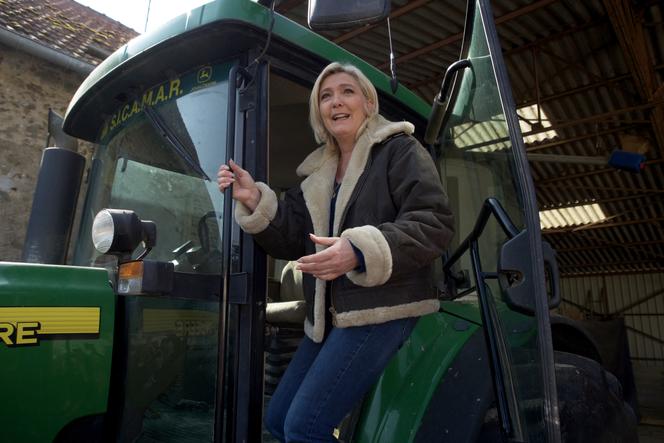


"Look at pesticides, herbicides and other phytosanitary product, whose economic results are undoubtedly negative once all the side effects are taken into account. They cost the community more than they bring in [...] France must be guided by concern for its own resources: soils, forests, water, pollinators, species diversity." This speech was given by a candidate in the 2017 French presidential election, one whose rhetoric was closer to Les Soulèvements de la Terre, a radical environmentalist collective, than to the FNSEA majority farmers' union. That candidate was Marine Le Pen. In 2017, during her second presidential election campaign, the far-right leader had positioned herself as a determined protector of the environment, as well as of farmers' and consumers' health.
At the time, the Front National (now Rassemblement National, RN) candidate promised to enshrine the French people's right to "environmental security" in the Constitution, invited farmers to turn to permaculture, and made a plea for regulatory standards and inspection – claiming that the global market share of the French agricultural sector was due in particular to "the agricultural, environmental and health excellence of our products." In a symbolic move, Le Pen included her measures for the agricultural sector in the environmental section of her program. Seven years later, as she visited the Paris International Agricultural Show, on Wednesday, February 28, the rhetoric was no longer the same.
Since the start of the crisis in the agricultural sector in mid-January, the RN has aligned its positions with those of the majority agricultural unions, declaring war on environmental and health regulations. The RN no longer defends the reduction in the use of plant treatment products, having expressed that this would be detrimental to the production capacity of the French farming and wine-growing sectors, and no longer mentions their harmful long-term effects. This fight against an allegedly "punitive ecology" has become the core of its rhetoric on the agricultural sector – taking precedence over the fight to secure farmers' incomes. The RN has therefore adopted the traditional right-wing position on the subject, and has claimed that it has been joined in this by Macron's majority bloc.
Renaud Labaye, Le Pen's right-hand man at the Assemblée Nationale, denied any change of position: "The line that has always been defended and applied is: 'Yes to the reduction of agrochemicals, on condition that this does not affect our production capacities'. On many points, [Prime Minister] Gabriel Attal's rhetoric is our own." The far-right's shift on the protection of biodiversity, which began in 2021, is one of the most spectacular in the party's recent history.
You have 68.35% of this article left to read. The rest is for subscribers only.
